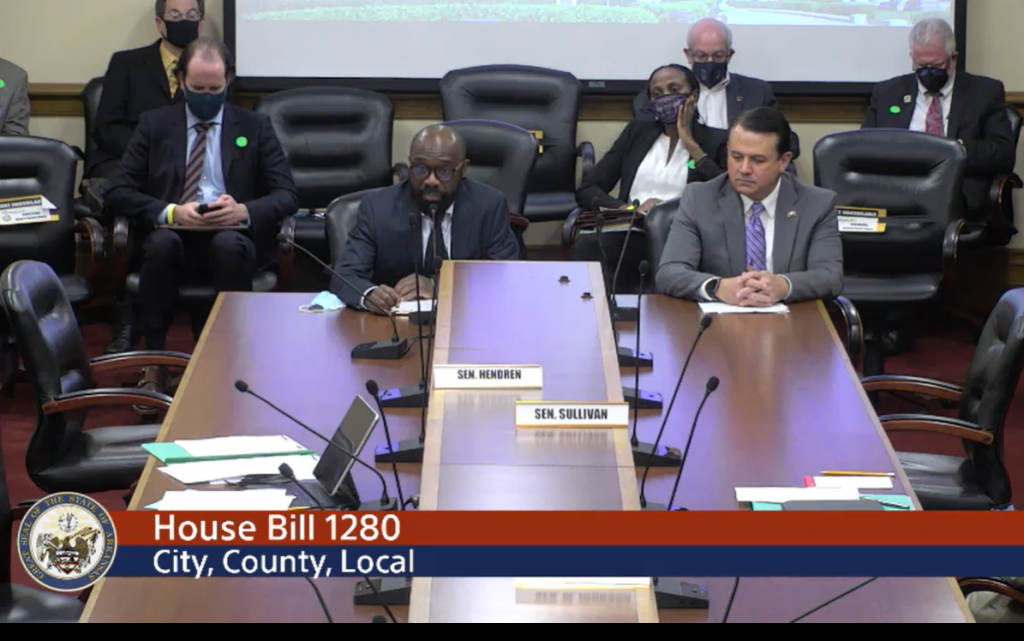By Caleb Taylor
Should local public officials be able to meet in secret to discuss economic development projects?
House Bill 1280 sponsored by State Rep. Delia Haak R-District 91 and State Sen. Lance Eads R-District 7 would amend Arkansas’s Freedom of Information Act (FOIA) to allow for an executive session to be called by local government officials to discuss economic development projects.
Executive sessions are closed to the public and these discussions aren’t subject to FOIA requests. Currently, local governments can only call an executive session for discussions related to employment, demotion, promotion, appointment, disciplining or resignation of public officers or employees.
During a meeting of the Senate City, County and Local Affairs committee on April 8th, Eads said the “bill allows cities and counties to go into an executive session to discuss an economic development project” and “specifically defines what that means and what types of things they can talk about.”
Eads said:
This would provide an exemption within the executive session from FOIA so that they would have the ability to discuss where they’re at in the process to make sure they have the best opportunity to be successful while at the same time not give out any vulnerable information by creating undue competition with information they don’t want to share with anyone else at that point in the process.”
ACRE Economic Policy Analyst Dr. Mavuto Kalulu said the bill would “erode” Arkansas’s FOIA that’s widely considered to be one of the best in the nation.
Kalulu said:
The bill restricts government transparency. In general, transparency is beneficial to both the government and for their citizens.There’s academic evidence that shows that economic development incentives are not as effective as they’re advertised hence the need for transparency. We’re pumping public money into economic development incentives that aren’t very effective. That’s why we need to be more transparent in the way we’re going about these deals.”
Kalulu is a co-author of “Access Arkansas: County Web Transparency” with ACRE Policy Analyst Joyce Ajayi.
You can watch Kalulu’s full testimony here (begins at 10:34:23 a.m.)
The bill failed to pass for a lack of a motion to pass. Previously, the bill passed the House 54 to 22 with 11 members not voting and 13 voting present on April 5th.
For more of our research on targeted incentives, go here. For more of our research on transparency, go here.

